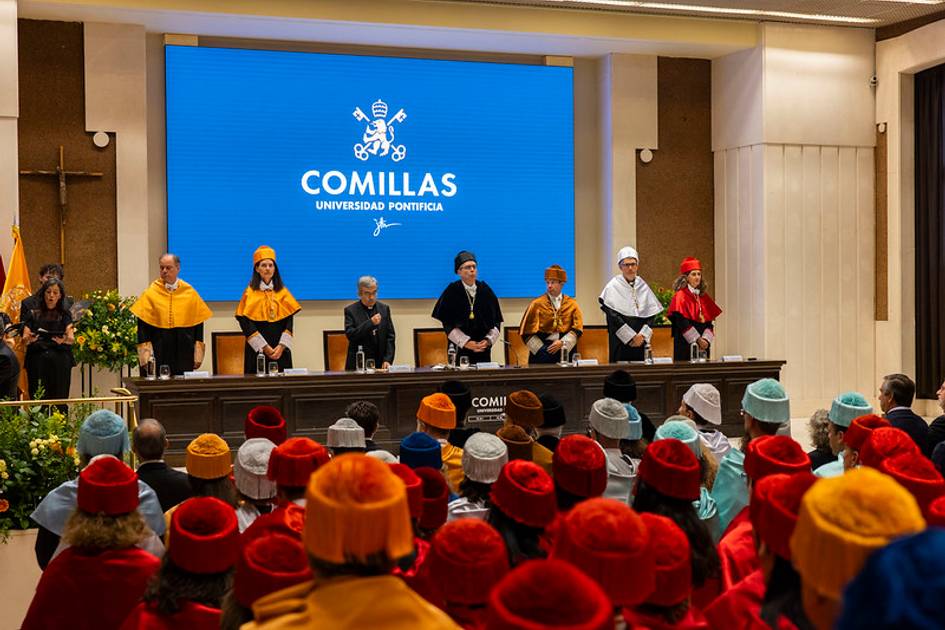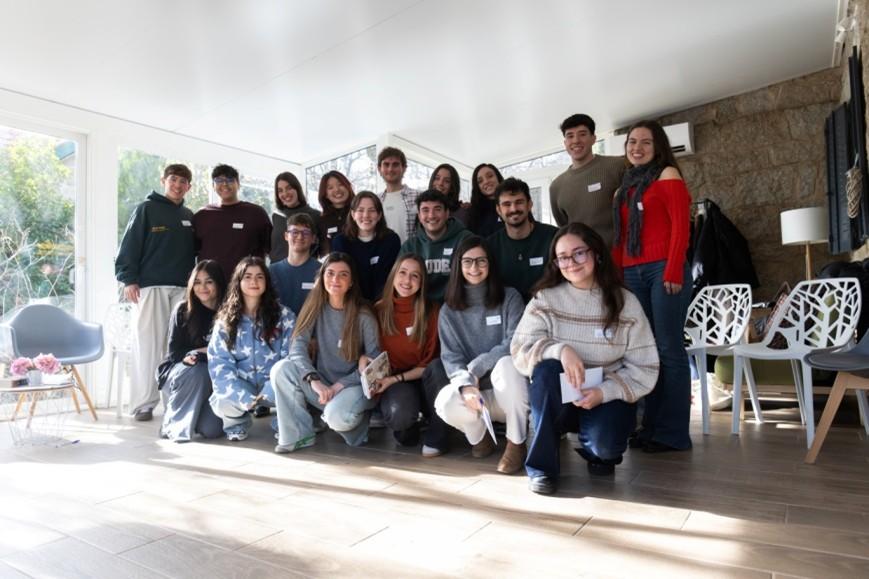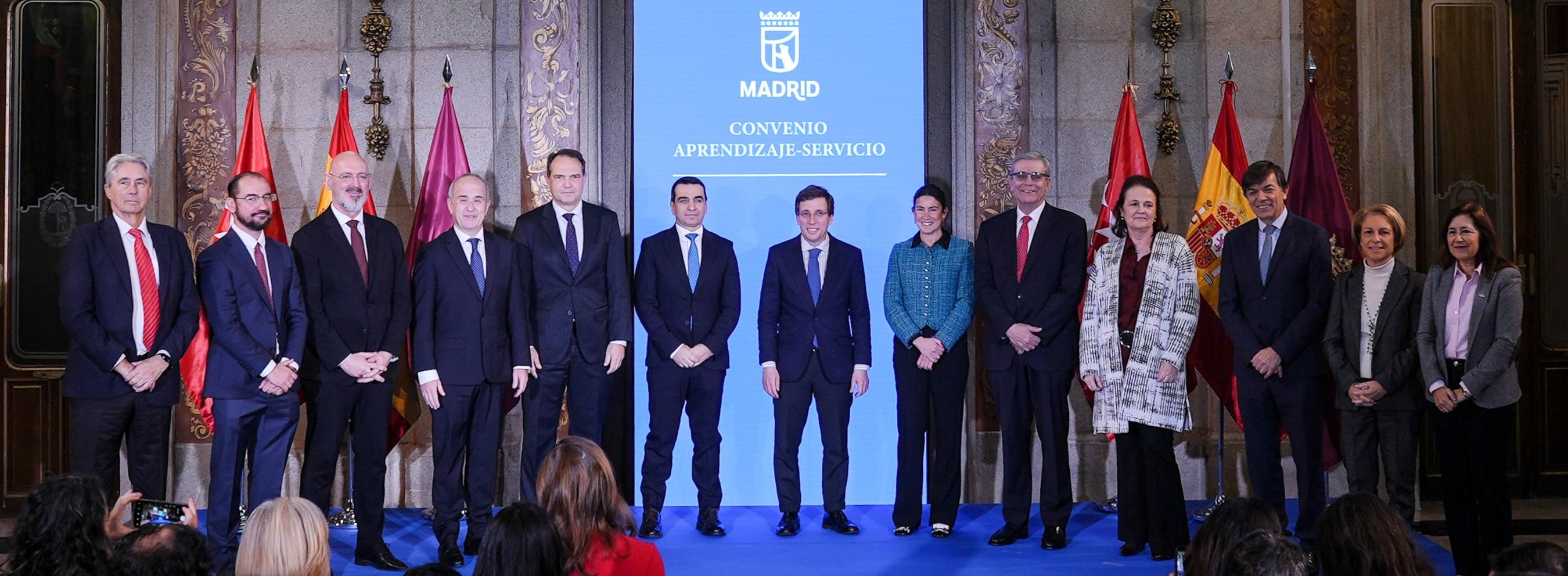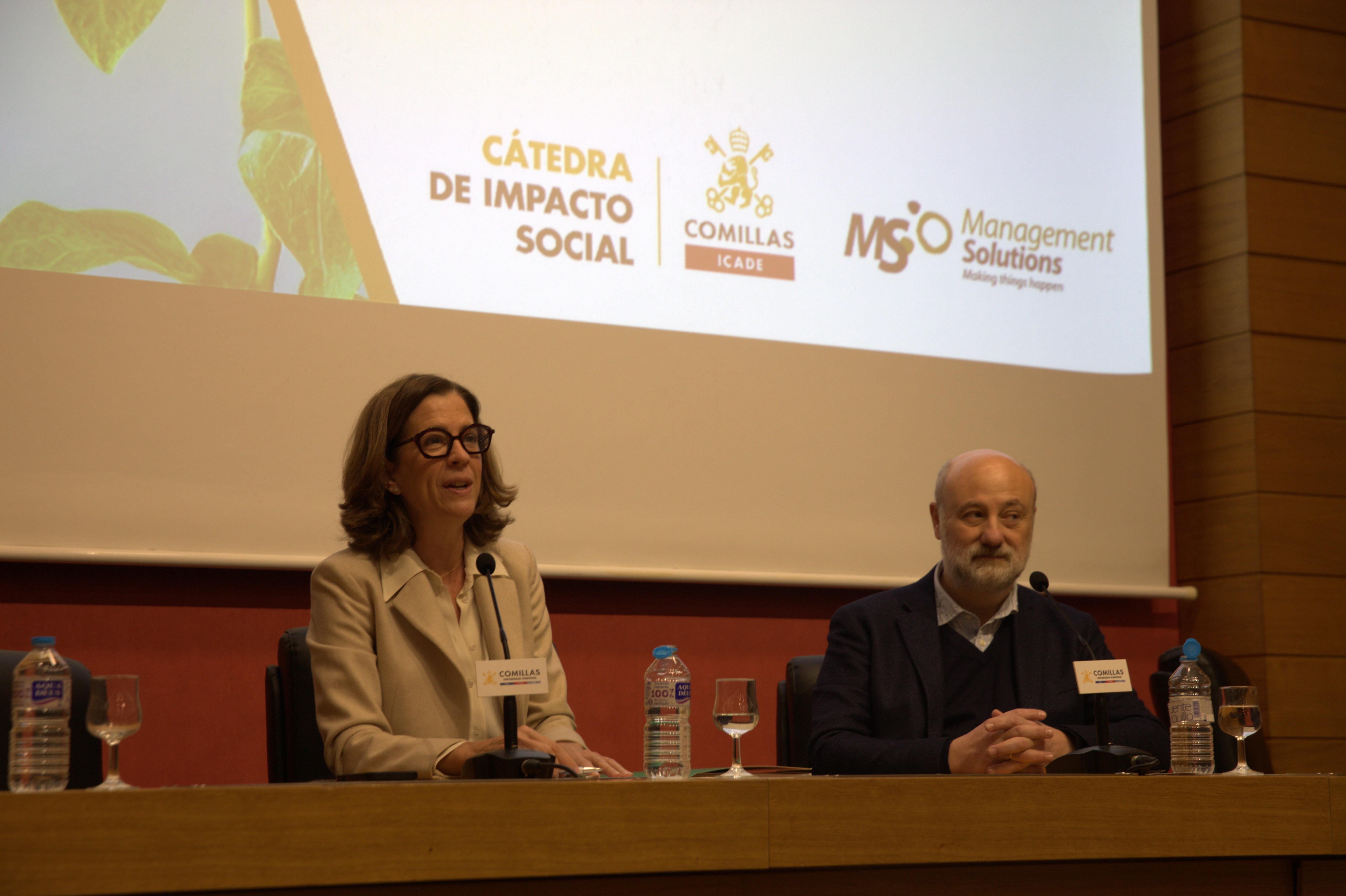The academic year 2025-2026 begins at Comillas with a call to the search for the good, beauty and truth
Pedro Fernández Castelao was in charge of giving the inaugural lecture in a ceremony attended by Mons. Luis Argüello, president of the Episcopal Conference

3 September 2025
Comillas Pontifical University officially inaugurated the 2025-2026 academic year with a solemn opening ceremony held in the Aula Magna of the Alberto Aguilera campus. The day began with a Eucharist presided over by His Excellency Monsignor Luis Argüello, president of the Spanish Episcopal Conference and archbishop of Valladolid, in the Church of La Inmaculada y San Pedro Claver (Alberto Aguilera, 23), who stated that "a society that welcomes the differences, diversity and sensibilities of people is a sign of an instrument of communion", and emphasised the importance of the Holy Spirit in our lives and in academic life.
This was followed by the academic ceremony, which opened with a brief summary of the activities for the academic year 2024-25. The Vice-Rector for Institutional Relations, Organisation and General Registrar, Dolores Carrillo, introduced the video by saying: "This is the living testimony of what we have overcome and speaks of the effort and commitment of the entire university community".
More photos
The inaugural lecture was given by Pedro Fernández Castelao, lecturer at the Faculty of Theology, who offered a reflection entitled "El sol, el pozo y la balanza. Tres imágenes elementales para hablar de Dios, la creación y la vida eterna". Through these three symbolic figures, Castelao proposed a new look at transcendence, the human condition and hope in eternal life, inspired by the three requests made by Cardinal José Cobo to the university community: to recover the value of words, to avoid polarisation and to find a new language to speak of God.
The sun, image of the loving infinity and constant presence of God; the well, symbol of the depth of the human being; and the scales, metaphor of hope in an eternity, were used by Castelao to reflect on the human condition. "We are made for the infinite," he said. "We are the inexplicable mixture of a finite infinity", he added.
In his speech, Castelao also addressed the phenomenon of post-truth, denouncing its use as a euphemism for what should unambiguously be called lies. In a time marked by emotional manipulation and the proliferation of hoaxes, he vindicated the value and density of words as essential tools for the construction of a fairer and more conscious society. "Bad things always begin with bad words", he recalled, stressing that language is not neutral, but a creator of reality, capable of orienting - or disorienting - existence.
The lecturer urged us not to give in to polarisation, to try to understand the point of view of those who are different, and to commit ourselves to dialogue, encounter, understanding, serenity, honest reflection and resistance, because "the only way to confront evil is to make a strenuous effort not to reproduce it", he noted. In the face of post-truth and polarisation, the lecturer appealed to the ethical responsibility of the university community to defend the truth and to walk together in the shared search for goodness, beauty and truth, in a year that begins with a commitment to think deeply and live authentically.
A community of care
The ceremony concluded with a speech by the Rector of Comillas, Antonio Allende SJ, who stressed the importance of living the university vocation as a form of service and dedication, recalling that "a life becomes meaningful when it becomes fruitful for others, when it is placed at the service of something greater than oneself". He also stressed the need to care for the vocational dimension of each member of the community, as a source of meaning and fulfilment, and for Comillas to continue to be a "community of care".
The Rector also spoke of the new Strategic Plan, which seeks to take up some of the tasks entrusted to it by the Superior General of the Society of Jesus, Arturo Sosa SJ, during his visit a year ago.He announced the creation of the new Governing Council of the University, which will replace the current Superior Council, as part of a process of renewal of governance aimed at greater collegiality and co-responsibility.
Finally, Antonio Allende SJ recalled that fidelity to the tradition of Comillas does not consist in preserving symbols, but in offering new responses to current challenges. Inspired by the legacy of Leo XIII and the election of the new pontiff Leo XIV, he reaffirmed the university's commitment to justice and peace, and to a mission that extends beyond its campuses, through research, training and the testimony of its alumni.
You may also be interested in

María Merinos and Marcos Fernández Martínez, students of the Dual Degree in Psychology and Business Administration, participate in this programme, a reference in Spain for the development of young talent

The agreement connects university education with projects with social impact, training students committed to the city

The Social Impact Chair presents a report that calls for guaranteeing the financial health of vulnerable groups to boost social cohesion
